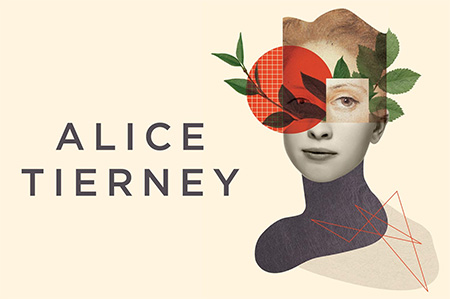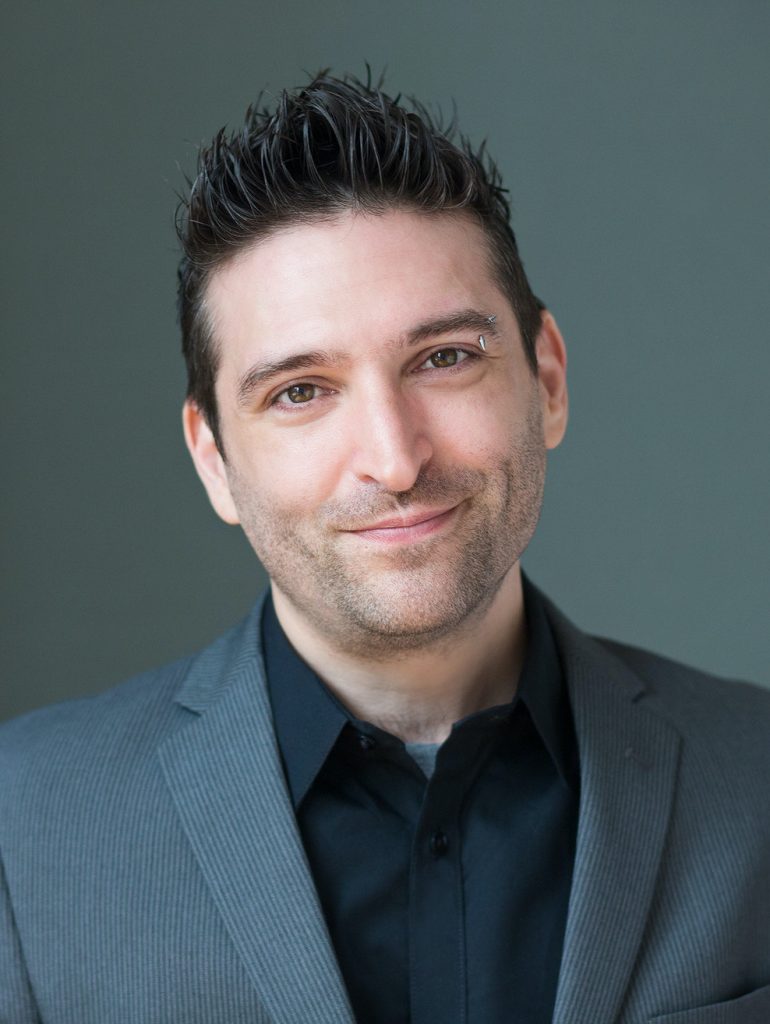by Mike Telin

On January 27 and 28 at 8:00 pm and January 29 at 6:30 pm in Finney Chapel, Oberlin Opera Theater will present the world premiere of Dunphy’s Alice Tierney. With a libretto by Jacqueline Goldfinger, the opera explores the fictionalized story surrounding the death of the real-life Alice. But who was Alice? And can four archeology grad students unveil the truth about her mysterious demise?
Stage direction is by Christopher Mirto, and Benjamin Martin conducts. The production is the Oberlin Opera Commissioning Program’s first world premiere. The one-hour performance is free but reservations are required.
Dunphy’s discovery of the real Alice Tierney began when she and her husband decided to build an apartment on top of the former theater. “In order to do that, they needed to dig into the foundation to strengthen it in order to support the added weight,” the composer said.
When they were digging they discovered two privy pits from the 18th century containing artifacts from the Revolutionary War era. “My husband and I both had a serious archeology obsession when we were children, so we were excited about the things that were coming out of the ground.”
The composer said that she also began to actively research the history of the building — who had lived there before and who had left the artifacts. “At the time, I was getting my PhD at the University of Pennsylvania, so digging into that history became my procrastination vehicle to avoid writing my thesis.”
While researching, Dunphy discovered a newspaper article from 1880 reporting that a “dissipated woman” had been found strangled and hung upside down on the fence at the back of what was now her property.
“Both the journalist and police force said that it was supposed that she tried to climb the fence and had accidentally gotten tangled up in her petticoat. I love true crime so this immediately tickled my fancy, but the more I thought about it, I thought, this is ridiculous. That’s not possible. She didn’t have to climb the fence since there was an alley that she could have used. And why would you even try to climb a fence in 19th-century petticoats and skirts? It became clear to me that she was murdered and had been dismissed because she was, as they put it, a dissipated woman.”

During a separate conversation Goldfinger told me that the idea of using Alice’s story as the basis for an opera was intriguing and had the makings for high drama, suspense, and romance. “But my main question to Melissa was, how are we going to connect this with the experiences of today’s audience? I knew her music would be fresh and contemporary because she’s a fabulous composer. But there are many ways to tell the story.”
Acknowledging that they could have gone in the direction of a straight history of Alice’s life, like a cold case file, they questioned whether that approach would be something that would pop off the stage. “We came up with this story structure where it is actually present-day grad students who are excavating Alice’s home and using what they find to piece together her story. But depending on what they find and how they view those findings, what her story is changes. So there are multiple students [four] and multiple Alice’s [three].”
Goldfinger noted that the opera is asking the question of who gets to tell a story, and how it changes depending on who is telling the story. “Even in your own family you have this — at Christmas somebody tells a story about an uncle and someone else will say no, that’s not the way it was, this is the way it was.”
The librettist said that a lot of research went into the creation of the opera’s plot. “How we tell stories based on our research is something that I am fascinated by. But just like the family stories at Christmas, we also do that in broader culture. You may hear a story about a historical figure from one person, but someone else may have an entirely different idea about who that person is based on the research they have prioritized. I think that question has now entered public discourse — whose version of the story gets to be told? What version is put into history books and what version is ignored? And is there a way to tell stories that leave the flexibility to account for other points of view? These are things that are being talked about a lot in society now, so it seemed like the perfect time to tell the story of Alice, and all the different Alice’s she may have been.”
Is Goldfinger herself any of the Alice’s? “I wish I was one of them. One Alice is a little funnier than the other. One’s a little sexier. But I think I share a little link with every Alice, and I think the audience will too.”
Does Dunphy identify with any of the Alice’s? “That’s a really good question! But I think in a lot of ways I identify more with the four archeologists. Even though Jackie’s words created the characters, I see a lot of myself in them, because I have been in the dirt digging and hoping to find something that will change my view of what the history of my house is. So I do identify with their motivation, but I have a special affinity for Quinn. At the beginning she has an aria about growing up working-class. And now she’s getting a PhD which she sees as a way to achieve class mobility.”
How does Dunphy describe her musical score? “I knew when I started writing that it was not going to be a story told musically in a late 20th-century avant-garde world, but sort of an amalgam of the old form of opera and newer pop styles.”
One of the composer’s first decisions was to include a particular instrument in the orchestra. “Something happens when you put a drum kit into any piece of music — as soon as our ears hear it, the music almost doesn’t sound classical anymore. Of course I’m not the first composer to do this, but the more I thought about it, the more I realized that pop music influences were seeping their way into the score. It also seemed to fit the characters more. I’m not sure, but I think that most archeologists are not listening to avant-garde classical music while on a dig. I doubt that Alice Tierney, a poor woman living by herself in the 1880s, was going to cutting-edge musical performances either. So I thought, if this is what the story and characters are saying to me, I’m going to lean into that.”

Mirto noted that in spite of the pandemic, the project is running on schedule. “It’s thrilling. We are at the end of our three-year commissioning cycle, so blessedly we are actually on time, which is very nice. It is great to be at that final phase after having thought about the opera from its genesis — from its origin story and the ideas that were brought to the table. From the libretto workshop that happened over Zoom to the first piano/vocal workshop that took place with masks on, and then the two workshops that followed — and now we’re here on the ground breathing life into it. I am beyond thrilled.”
What drew Mirto to using the Alice Tierney story as the basis for an opera? “Melissa pitched it, and I was excited about this idea of how we think about things — the pros and cons of subjectivity. I was also taken by the multiple narratives that she had suggested. So for me, it’s been a thrilling challenge to embrace this messy thesis, a complicated idea that doesn’t have an answer at the end of the piece — it kind of poses more questions than answers, and I was dazzled by that.”
Dunphy, Goldfinger, and Mirto are all impressed with how the students have embraced being part of the development process. “That was the design of the commissioning project, to expose them to every moment of the creation of a new opera,” Mirto said. “So most have been with it since the first libretto workshop, including our conductor, Ben Martin. He conducted the workshops as a student, graduated last year, and is now coming back to conduct the premiere as a brand-new professional out in the world.”
What exactly is the commissioning project? “The concept was to take advantage of Winter Term and produce an opera that would complement the mainstage productions,” Mirto explained. “I put together a pitch for this fantastic Oberlin alum, Justus Schlichting, who is a huge proponent of new music. But the most thrilling part of the project is that students will have something tangible at the end that we have created and sent out into the world.”
Indeed, following this week’s Oberlin performances, Alice Tierney will be staged by Opera Columbus. “It’s tremendous for a new work to have the stamp of approval at the academic level but also to enter into the world through a professional stage. That’s kind of a miraculous thing for a new opera.”
Mirto said that the commissioning project is a unique opportunity for undergraduate opera singers. “I can’t think of another undergrad program that has this kind of entry point to new works — not just doing it, but being part of the process. Alice Tierney has been built from the ground up, and I think that gently reminds students that all the great works at some point were at this exact same place — asking questions and wrestling with things. Probably not every aria in Tosca worked the first time.”
The director also sang the praises of the entire production team. “I’ve got tremendous people working on this project — they are making me a better director, making the show sharper, and continuing to dig in and wrestle with it, and I am beyond grateful that they are still willing to stay rigorous with the work. It’s been an awesome experience.”
Published on ClevelandClassical.com January 25, 2023.
Click here for a printable copy of this article


